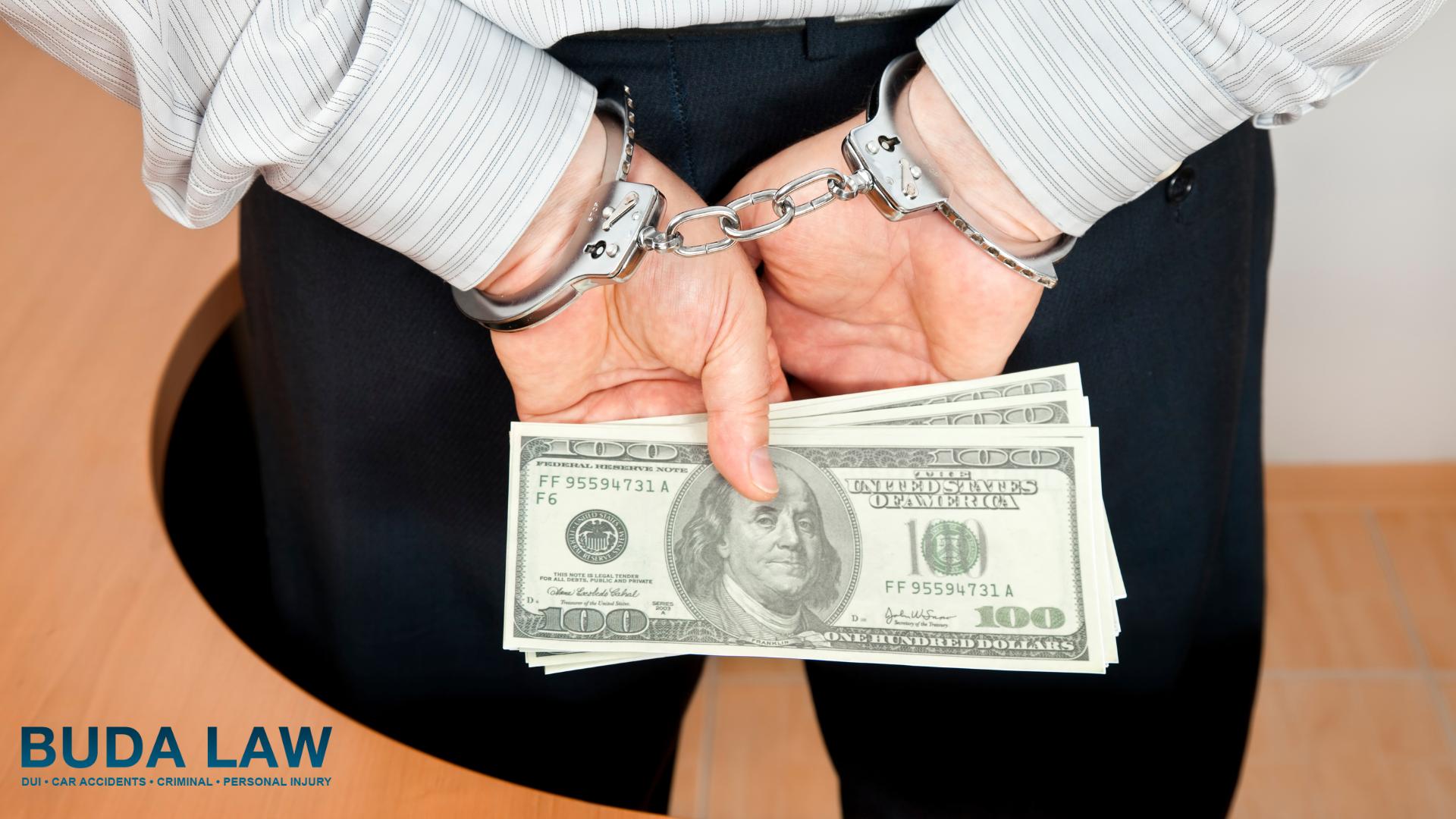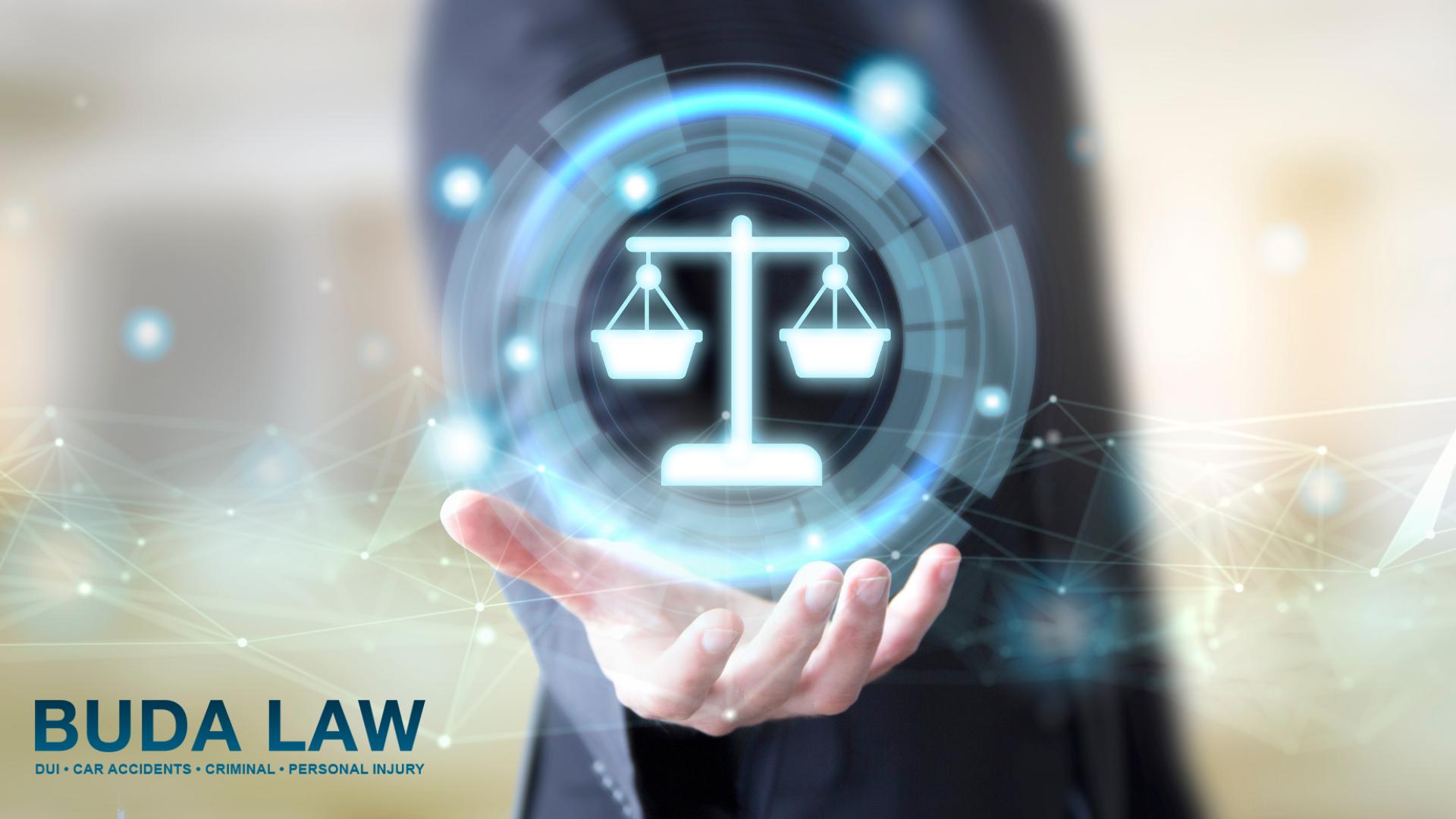Aggressively Fighting for the Best Possible Outcome
TAMPA WHITE COLLAR CRIME LAWYER
Work with an Experienced Former Prosecutor
White-collar crimes have entered the 21st century with online banking and more advanced technology, making committing these non-violent crimes easier. By making a simple phone call, a person could defraud another out of hundreds of dollars in a matter of minutes, thanks to cash apps and other services that can transfer money quickly. As white-collar crimes continue to adapt with the times, Florida has cracked down even harder on prosecuting those that have committed these crimes.
If you suspect you could be facing charges for a white-collar crime, it’s not time to throw in the towel. White collar criminal defense attorney Andrew Buda knows the inner workings of the Florida criminal justice system from his time as prosecuting attorney in Pinellas County. He knows how the prosecution will approach your white-collar case and tailor your criminal defense to fight back. This experience will help our legal team help you achieve the best possible outcome from your Florida white-collar crime charges.

Get in touch with Tampa White-Collar Crime Defense Attorney Buda Law today by calling (813) 322-2832 to schedule a free consultation.
What is a White Collar Crime?
First things first: what is considered a white collar crime? A white-collar crime is a non-violent crime that is usually directly or indirectly committed for financial gain. People working in government, finances, or business can be responsible for committing white-collar criminal offenses. However, white-collar crimes aren’t always about making money; they can also involve schemes to avoid losing money.

Types of White-Collar Crimes
White-collar criminal offenses cover a wide range of non-violent crimes involving finances. The most common white-collar crimes are detailed below:
Fraud
Fraud charges in Florida cover a wide variety of financial schemes, all with the intent to cheat individuals out of their money. Popular fraudulent activities are identity theft to make unauthorized purchases or false insurance claims.
Typical fraud schemes include:
- Fraud against the government, such as tax fraud, health care fraud, or welfare fraud
- The direct solicitation of money from individuals like an investment scam or Ponzi scheme (more on that below)
- Identity theft or the forging of documents to commit bank fraud or credit card fraud
Embezzlement
Embezzlement in Florida includes any white collar crime involving the misappropriation or theft of funds they were entrusted with. This white collar crime can be simple, like an employee swiping a few dollars from the cash register. A more complex embezzlement scheme can be a corporate employee moving funds to private accounts but still showing in the finances that the money hasn’t been transferred.
Any time a person responsible for finances steals it for themselves or sends it to another is considered embezzlement. This can be done by creating phony invoices, over-billing, forgery, etc.
Money Laundering
Individuals use money laundering to “clean” large amounts of money that they make from drug trafficking or other illegal activities. Money generated from illegal activity is considered “dirty,” so criminals will deposit that money into legitimate financial institutions. However, many criminals that practice money laundering also have a business that seems honest, also known as a “front,” where they can incorporate illegally generated funds with legal funding to avoid detection. This can be done by falsifying receipts or inflating the books to look like more money was made from the legitimate business than there actually was.
To simplify, money laundering typically follows these steps:
- Placement: Moving “dirty” money into the financial system.
- Layering: Covering the money trail with bookkeeping tricks and transactions.
- Integration: The now “clean” money is withdrawn and can be used without raising red flags.
With online banking and cryptocurrencies like Bitcoin, money laundering is even more accessible and just a click away.

Tax Evasion
Tax evasion occurs when a person or business deliberately avoids paying taxes by either underpaying or not paying at all. An example of tax evasion is when a person or company receives cash for services rendered and does not accurately report the money earned.
To determine tax evasion, the IRS will evaluate a person or business funds to decide whether the nonpayment or underpayment was due to fraudulent activities or lying about their reported income. To be charged with tax evasion, the IRS must determine that the failure to pay or underpay was intentional. The IRS can discover an individual or business committing tax evasion through documentation filed by a third party, like an employee’s W-2 or 1099.
The IRS considers failure to pay taxes a federal criminal offense that could lead to criminal charges. Individuals and businesses could be subject to hefty fines and prison time. Individuals could pay over $200,000, and companies could pay over $500,000.
Counterfeiting
The United States federal government is the only agency that can print and coin U.S. currency. Any currency that is printed outside of the two U.S. Mints or money that has been altered fraudulently is considered counterfeit.
When a person prints their own money, alters money, and/or uses counterfeit funds, they are committing a white collar crime that is punishable under federal law. To battle counterfeiting, the U.S. government has added more colors and details to printed money to make duplicating it more difficult. However, with today’s advanced technology and laser printers, creating counterfeit bills has made printing easier, as long as a person has the right paper and ink.
It’s important to note that if someone is caught unknowingly using counterfeit bills, they will most likely not be found guilty. In order to be convicted, the person must have knowingly obtained the counterfeit money to use with fraudulent intent.
Insider Trading
Insider trading is a white collar crime that occurs when employees buy, sell, or trade a company’s stock using material nonpublic information. Using this information gives those an unfair advantage over other individuals who have invested in the company. Material nonpublic information is any information that can affect the value of the company’s share price. For example, if something negatively affected the value of a company’s stocks, employees could use that information to sell their shares before a crash.
Martha Stewart was famously charged with insider trading, among other things, in 2003. Stewart was charged by the SEC, U.S. Securities and Exchange Commission, for selling her shares in a biopharmaceutical company right before the news was released that the Food and Drug Administration, FDA, would not approve their cancer treatment drug. Once the FDA did not approve their cancer drug, the company’s shares fell by over 15%. This saved Stewart over $40,000 since she had already sold her shares of the company thanks to inside information. In 2004, she was charged with lesser crimes and would only serve five months in a federal corrections facility.
Extortion
Extortion is a criminal act that involves obtaining money, property, or services from individuals or organizations through coercive means. This coercion can take many forms, including physical threats, psychological manipulation, and emotional blackmail. Perpetrators may exploit vulnerabilities by threatening to reveal sensitive information, damage someone’s reputation, or use other forms of intimidation to force compliance. If you’re facing such charges, it’s crucial to seek legal counsel from an experienced Tampa extortion lawyer ASAP.
Bribery
Bribery is a white collar crime in which one person uses something of value to influence another’s decision making. Similar to blackmail and extortion, bribery is the use of money or something of value to change another individual’s decision, keep them quiet, or make them speak up. Often, this can happen in politics when someone bribes a politician to influence their decision making. Bribery can also occur by using something of value to influence someone to perform an illegal activity or overlook an unlawful activity.

Ponzi Scheme
A Ponzi scheme is a fraudulent investment where people are promised high returns on their investments with almost no risk. Those that invest early into a Ponzi scheme will have their money paid back to them by using money from later investors. As long as there is a constant flow of money from new investors to repay old investors, the Ponzi scheme will continue until those funds run out. A Ponzi scheme is similar to a pyramid scheme in that both fraudulent investment opportunities depend on the finances of those investors lower on the totem pole to pay back investors higher up.
The Ponzi scheme was named after a con man named Charles Ponzi. During 1919-1920, Ponzi ran an investment scam promising investors 50% interest after 90 days. Ponzi would recruit new investors, collect their money, and redistribute it to other investors by telling them they made a profit. In the fall of 1920, he was caught due to an article published in the Boston Post. Overall Ponzi swindled $15 million from investors during his eight-month scheme, totaling $220 million in today’s currency.
In more recent news, Bernie Madoff was convicted of orchestrating the largest Ponzi scheme in U.S. history in 2008. Madoff ran his Ponzi scheme for at least 17 years, if not longer, and defrauded investors out of billions of dollars. When he was sentenced in 2009, Madoff was forced to pay restitution totaling $170 billion and was sentenced to 150 years in prison.

What are the Penalties for White Collar Crimes in Florida?
The state of Florida is known for being tough on white-collar crimes in order to deter offenders. The penalties for someone charged with a white-collar crime will vary depending on how severe the crime is. Depending on the severity, these crimes can be punished by state or federal law. Individuals charged with white-collar crimes usually have to pay restitution, other fees, and jail time.
Those charged with a white-collar crime can face either misdemeanor charges for a minor offense or felony charges for a more severe white-collar offense. A white-collar criminal charged with a Florida 1st degree misdemeanor could pay $1,000 in fines and spend up to a year in prison. A person facing a Florida 2nd degree misdemeanor might have to pay a $500 fine and spend up to two months in jail.
The penalties for white-collar felonies are more severe:
- A third-degree felony could cost up to $5,000 and 5 years in jail.
- A second-degree felony could result in up to 15 years in jail and pay a $10,000 fine
- A first-degree felony could have a fine of up to $10,000 and 30 years to life in prison.
The more money that someone fraudulently obtains, the more severe the sentencing. For example, money laundering transactions that reach a maximum of $100,000 is an automatic second-degree felony in Florida.

Why You Need a White-Collar Criminal Defense Lawyer
Florida is notoriously harsh on white-collar criminals, so it’s important to have a criminal defense lawyer ready to fight back. A simple misstep during the beginning phases of your case can be detrimental to your white-collar defense, so it’s crucial to hire a Tampa criminal defense attorney like Andrew Buda as soon as you’re charged with the alleged crime.
Rest assured, the outcomes of your white-collar criminal case will be much better with an experienced criminal defense lawyer representing you.
Facing White Collar Crime Charges in Florida? You Need Tampa Criminal Defense Attorney Andrew Buda On Your Side
If you’re facing a white-collar criminal charge, you need the help of experienced Tampa white-collar crime lawyer Andrew Buda. With years of experience in criminal law on both sides of the courtroom, Andrew Buda will know how to fight the prosecution against your criminal charges. To discuss your case with one of our expert criminal defense lawyers, call (813) 322-2832 today.
CASE RESULTS
Get the Toughness of a Trial Attorney
START BUILDING YOUR CASE
Schedule a Free Consultation
WHAT MAKES OUR DEFENSE SO EFFECTIVE?
- Former State Prosecutor
- Highly Responsive & Accessible
- Result-Oriented Advocacy
- We Prepare Every Case as if it's Going to Trial
- Personal Representation Centered Around You
- Exceptional Negotiator
